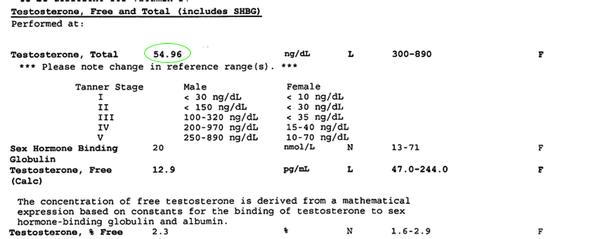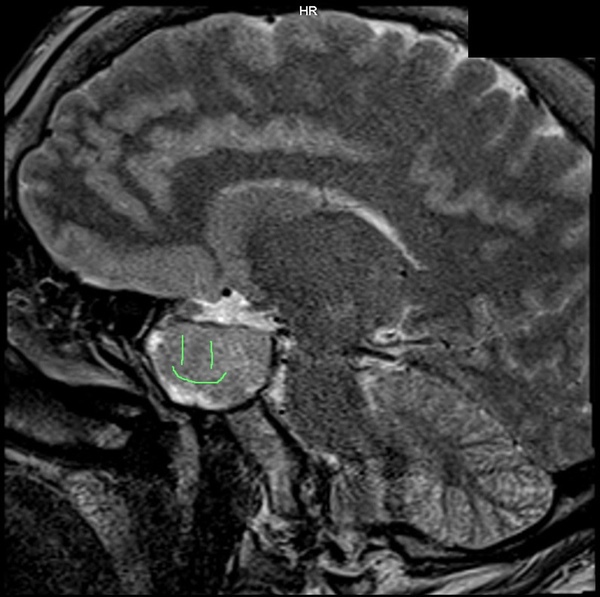Benign with Benefits
(Greetings: This blog existed in some form before I transitioned. I’ve decided that I want to maintain that history, so this post remains.)
Words Have Meanings
Words have meanings. Many times people will use a word incorrectly - sometimes so incorrectly the idea they express is the literal opposite of the actual meaning of the word. Other times, though, people use a word correctly, but the common usage and even the definition are insufficient to actually describe the subject. From Wiktionary:
benign (comparative benigner or more benign, superlative benignest or most benign):
- Kind; gentle; mild.
- (medicine) Not posing any serious threat to health; not particularly aggressive or recurrent.
We’re interested in the second definition of ‘benign’. I’ll give them the second part of it - benign tumors aren’t particularly aggressive in growth or in recurrence. On the other hand I have to call bullshit on “not posing any serious threat to health”. I think what they meant there, and what so many people mean is, “unlikely to kill you in the near term”.
Asking the Right Questions
After years of going to various doctors, having weight loss surgery, talking to therapists and trying various medications to help me focus, to give me more energy, to make me happy, I was at my wits end. I was at the point where I was just going to say yes to all the medicine they wanted to give me for problems I didn’t I had. My ‘hail mary’ pass was to get as many things as could be easily tested for that kind of fit my symptoms together, find a primary care doctor in my area, write them a 2 page essay introducing myself and describing what was wrong with me, and hope they would run the tests I asked for. Thankfully, the doctor was either convinced or amused enough by the fact I took the time to write an essay about what I felt was wrong with me that he ordered 10 of the 11 blood tests I asked for. He would end up running the 11th the next time he saw me.
Talkin Bout Balls Deep
 lowt
lowt
Humor (often inappropriate) is the only way I know how to deal with things, which I think is why I’m able to talk about this as comfortably as I am. This is good, because a lot of people aren’t able to and someone should speak up for them. If more people knew about these things, fewer people would end up like I did. That image is a scan of one section of my blood work results. Free Testosterone for someone my age (30) should be in the neighborhood of 400–600 nanograms per deciliter. Mine was 54.96 - so a bit low, yeah. In addition to explaining why I had lost any physical interest in others, it turns out low testosterone also explains a lot of the ‘physical’ issues I’d been having - low testosterone reduces drive and ambition, it can cause anxiety issues, and having a healthy testosterone level is good for your health in many ways - but because it is related to our naughty bits (sadly NSFW probably), nobody wants to talk about it, and so people are that much more likely to ask their doctor about it.
So, once I found that out - and I had suspected it going in so I had already become a Wikipedia M.D. on the subject - I asked what the course of action was, expecting my doctor to come back at me with a prescription for some kind of supplement or replacement therapy, but instead he ordered an MRI. I was furious - I finally had an answer, and I wanted to fix it now, dammit. Thankfully the education my doctor received was significantly better than the one I got from Wikipedia, because he knew one underlying cause of Low Testosterone could be a pituitary tumor. When the place they scheduled me for said it’d be two weeks before I could get the MRI, I found a different place that could get me in that Friday and was still covered under my insurance.
No, Actually, It Is A Tumor
I went for the MRI that Friday. I found it oddly comfortable actually, and somewhat relaxing since the MRI had a nice rhythm to it and I couldn’t be on my phone or tablet. I think I might have nodded off once or twice for just a moment. After they were done, they had me wait in the reception area while they burned my results to a CD. They wouldn’t tell me what their interpretation of the results was, they said I had to wait until Monday when I saw the endocrinologist. Being the impatient nerd that I am, and having the disc in my hand, I went about extracting all of the images, removing any PII, and posting them on reddit. Thankfully they are better radiologists than they are detectives, and they were able to interpret what I saw.
 MRI Results
MRI Results
That huge, off-color thing with the smiley face is what they call a ‘pituitary macroadenoma with right cavernous invasion’. That means it grew from my pituitary gland (the “master gland”) and instead of pushing against my optic chiasm and potentially blinding me or causing a bleed, it grew down into one of my sinuses.
Hopkins Is Not a Rabbit
After talking to a local endocrinologist and my doctor, I decided to take the reigns and send all of my case information to Johns Hopkins, an hour by car that I felt was worth traveling to be evaluated by one of the best neurology programs in the world. I emailed them all my case information that Tuesday morning and by Tuesday afternoon I had a appointment with a neurologist, neuroophthalmologist and neuroendocrinologist. Here a neuro, there a neuro, everywhere a neuro neuro. When I got there Thursday they drew blood, and then I went about my appointments talking about potential courses of action if it required surgery, as well as possible medical treatments if it was the right kind of tumor.
Prolactiwhat?
It was getting towards the end of the day and I was meeting with the ophthalmology resident when I got a call from the endocrinologist I had seen earlier in the day. My prolactin level was 4000, and that meant it was a prolactinoma and was “probably” medically treatable (in other words, I take a pill for a while, it kills the tumor!). They would call in a prescription for cabergoline and I would take a 0.5 milligram pill every three days, and it would eventually relieve most of my symptoms, reduce my prolactin level, and someday even kill the tumor off entirely. I was so excited that I might not need surgery I didn’t mind having no idea what prolactin was. Once I got home and the excitement wore off a bit, I started brushing up that Wikipedia M.D. and learning about prolactin.
Prolactin is a hormone that occurs in both males and females. While it apparently has dozens if not hundreds of functions, the one it is best known for is stimulating the mammary glands to produce milk. During pregnancy a woman’s prolactin level may rise to as much as 400. Mine, you’ll recall, was 4000. Fortunately, unlike some unfortunate men with similar conditions, I did not get leaky, or any symptoms along those lines. In fact, I had virtually no symptoms that couldn’t be explained away by one more common condition or another. Perhaps if I had, someone would have found this years ago. Current estimates have this thing as having been in my head for a 8–10 years, if not longer. Crazy.
One of the other effects of prolactin is that it suppresses sex hormones - both estrogen and testosterone. So the hope is that, once my prolactin level reaches normal 3–6 months from the start of treatment, my testosterone may begin to recover. That in combination with the reduced prolactin level will make it easier to lose weight, to build muscle. It will cause changes in mood and demeanor - my ambition may come back, my concentration might improve, etc. I will also in some respects experience a kind of second puberty - because hey the first one was so awesome! - and things I had written off as things I would never have might again seem possible.
Time Flies When You’re Killing Tumor Cells
I actually first received the news about the tumor at the end of May 2013. I meant to write this article a few days after but I just never made the time. Hopefully the fact I am making the time now is a positive sign for the future. This past Monday was 30 days since I started the cabergoline, and I had blood work done to check my prolactin and testosterone levels again. My prolactin level, which was 3700 at my Doctors, and 4000 when I went to Hopkins, was down to 370 in just 30 days. This is a hugely positive sign. My testosterone level is unchanged, but it is important to remember that 370 is still between 26 and 74 times the normal amount, which means it is still heavily suppressing normal hormone function. I’m eager, though, to see what the next 90% reduction will bring - and I am hopeful that in a month, we might find out.
If there are lessons to be learned in this story, I’d like to think that they are:
- Trust your instincts when you know something is wrong. Be relentless, even if it takes years.
- Be honest with your doctor. Ask uncomfortable questions. If you have to, write it down and hand it to them on a piece of paper. Don’t let timidity get in the way of living your life. Besides, your doctor has seen weirder things than whatever you have going on.
- Just because something is benign, doesn’t mean it won’t leave it’s mark.
This started as, and still will be in many ways, a weight loss blog. I hope that my next adventure in weight loss will be much more successful since I will have dealt with much of the underlying hormonal issues that could have been preventing the weight loss I worked so hard for. I’ve developed the good habits, and I know what I need to do - I just need my body to catch up with my mind.